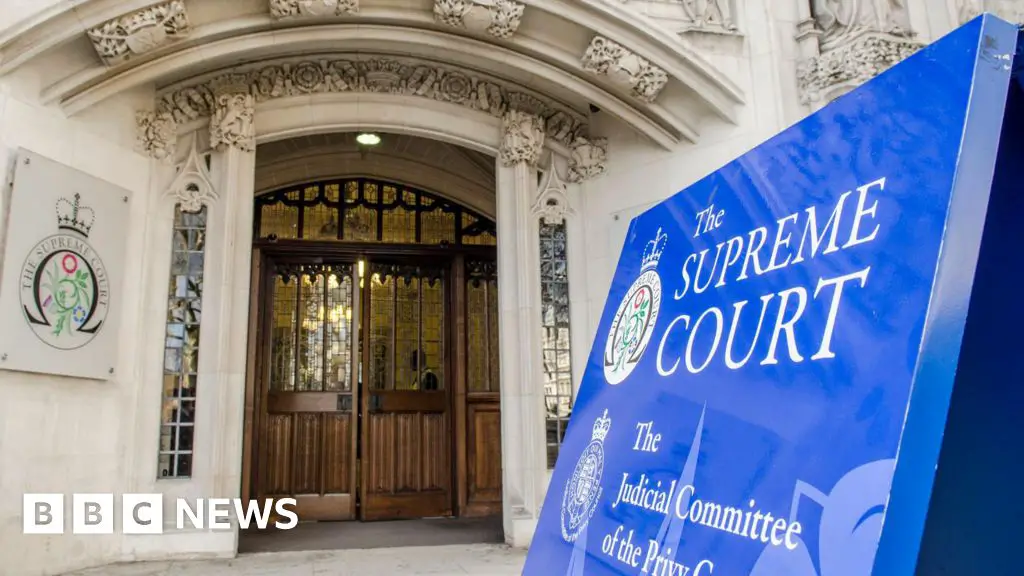
The issue being considered by the court is whether “a person with a full gender recognition certificate – which recognises their gender is female – is a ‘woman’ for the purposes of the Equality Act”.
Aidan O’Neill KC, representing For Women Scotland, described that premise as a “legal fiction”.
He argued for the “common sense” meaning of the words man and woman, telling the court that sex is an “immutable biological state”.
The KC said that definition of sex was necessary to protect the rights of women.
For Women Scotland argue, external the Equality Act supersedes the GRA thanks to a subsection of the 2004 Act which nods to it being subject to “provision made by … any other enactment”.
Mr O’Neill denied that For Women Scotland’s case was “transphobic”, arguing that it could never have been parliament’s intention for equality law to have “absurd or nonsensical outcomes”.
He gave the example of a heterosexual man getting a full GRC. He said they would in theory become a same-sex attracted woman. The court heard this could leave lesbian associations with “no choice but to admit natal men into their ranks”.
The lawyer said this and several other examples he gave were evidence of the patriarchy in action. He said the court should not “capitulate” to the patriarchy, urging judges to “confront” it.
He raised the issue of women-only spaces such as hospital wards, refuges and prisons and said admissions could be decided only by the “paperwork” of a GRC.
The Scottish government meanwhile essentially argues, external that the two pieces of legislation are clear in their language, and that MPs knew what they were doing when they passed them.
Ruth Crawford KC, representing the Scottish government, told the court there is “no express measure” made in the Equality Act to affect the GRA’s wording that a certificate changes someone’s sex, “nor is it implied by the purpose of the act”.
She said the GRA makes clear a full gender certificate applies “for all purposes”.
The lawyer argued the GRA ensured “a person who has become the sex of their acquired gender is entitled to the protections of that sex”, including protection against unfavourable treatment as an individual or a group.
Ms Crawford said someone who had acquired status as a women using a GRC belonged to their acquired sex and was entitled to its protections under the Equality Act as much as those who were women at birth.
She also said a woman who got a GRC to become a man no longer belonged to their previous sex, and would lose protections offered under the Equality Act.
She countered claims from Mr O’Neill that a gender certificate was a “legal fiction” or of merely symbolic value.
She described it as a “fundamental right” similar to adoption, telling the court a GRC affected an individual’s relationship with the state, and with private organisations such as employers.
Five judges will hear their arguments – headed by the court’s president, Lord Reed – and will retire to consider them before issuing a judgement at a later date.







